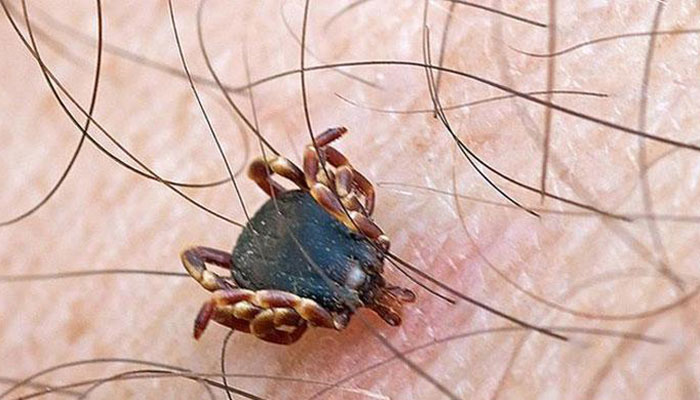
KARACHI: A 20-year-old was diagnosed with the Congo virus, taking the reported number of cases to four for this year in Karachi.
A resident of Safoora Goth, Pervaiz was taken to Karachi's Jinnah Hospital after he showed symptoms of Congo Crimean Hemorrhagic Fever (CCHF).
In August this year, 23-year-old Salman was diagnosed with the disease.
According to Dr Seemin Jamali, there are three Congo virus patients under treatment at Jinnah Hospital.
"Two of the patients are from Quetta, while the third is from Karachi," Dr Jamali said.
11 patients have been hospitalised so far in 2018, she added.
"Four out of the 11 patients have succumbed to Congo virus," Dr Jamali added.
The CCHF is caused when a tick attaches itself to the skin of cattle. People who come in contact with the infected ticks or animals can contract the highly contagious, viral disease that has 40-50 per cent mortality rate.
The onset of CCHF is sudden, with initial signs and symptoms including headache, high fever, rashes, back pain, joint pain, stomach pain, and vomiting.
Preventative measures
To reduce the risk of tick-to-human transmission, the World Health Organisation recommends the following measures:
- Wear protective clothing (long sleeves, long trousers);
- Wear light-coloured clothing to allow easy detection of ticks on the clothes;
- Use approved acaricides (chemicals intended to kill ticks) on clothing;
- Use approved repellent on the skin and clothing;
- Regularly examine clothing and skin for ticks; if found, remove them safely;
- Seek to eliminate or control tick infestations on animals or in stables and barns; and
- Avoid areas where ticks are abundant and seasons when they are most active.
To reduce the risk of animal-to-human transmission:
- Wear gloves and other protective clothing while handling animals or their tissues in endemic areas, notably during slaughtering, butchering and culling procedures in slaughterhouses or at home;
- Quarantine animals before they enter slaughterhouses or routinely treat animals with pesticides two weeks prior to slaughter.
To reduce the risk of human-to-human transmission in the community:
- Avoid close physical contact with CCHF-infected people;
- Wear gloves and protective equipment when taking care of ill people;
- Wash hands regularly after caring for or visiting ill people.
Comments
Post a Comment